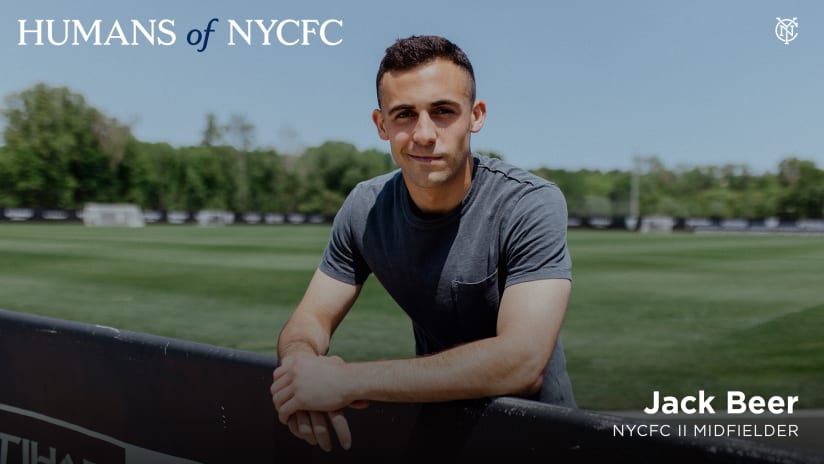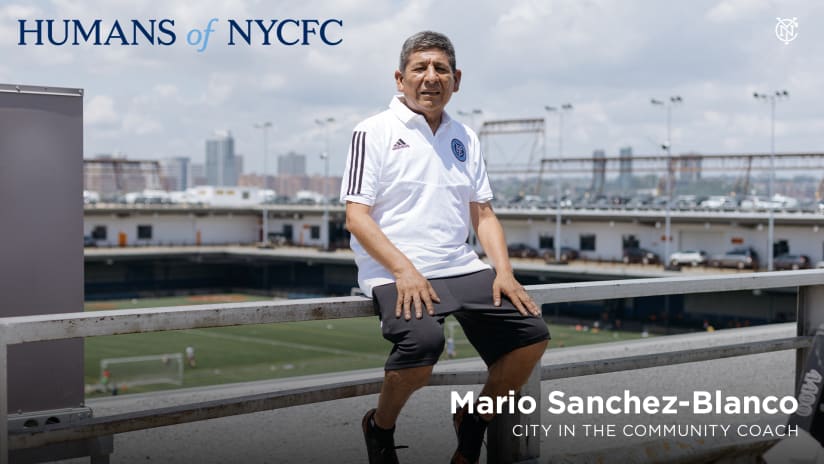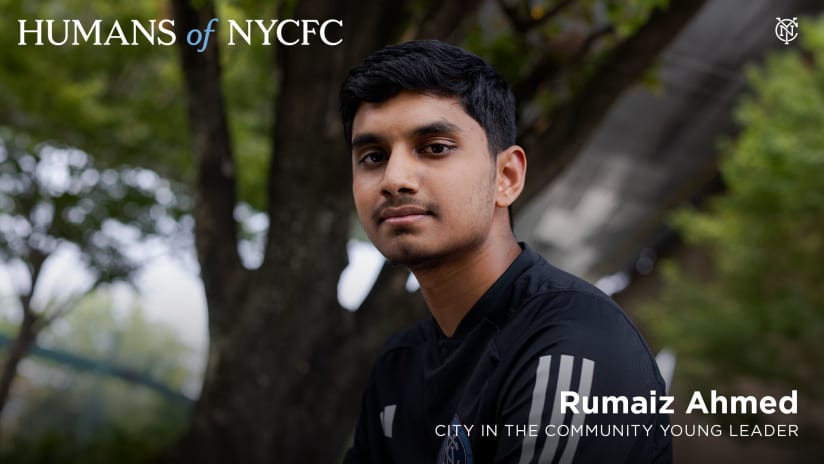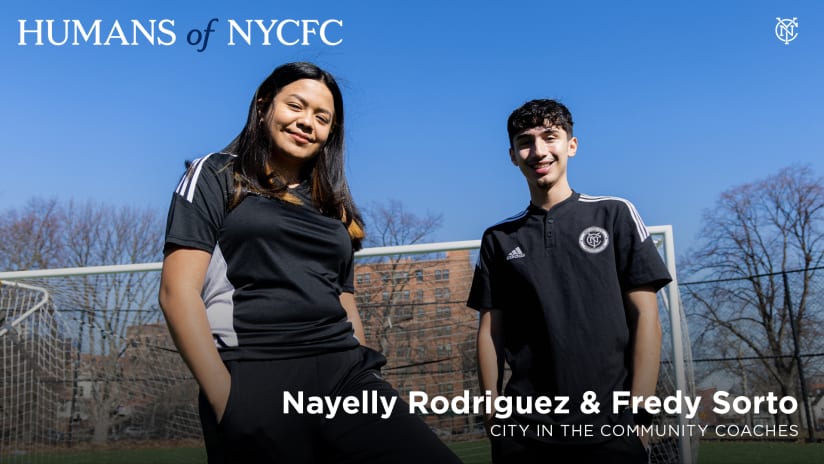Jack Beer knew something wasn’t right.
The NYCFC II midfielder had spent years wrestling with stress, anxiety, and even panic attacks. His attempts to control those moments and enjoy the game of soccer had been an ongoing battle throughout his teenage years.
It was only in College that he felt able to finally speak up to those around him. Now able to open up on that journey and advocate for Mental Health Awareness, he explains how life can be better by just talking to those you trust.
Hi Jack, let’s start at the beginning. What is your first soccer memory?
First memory? Wow. I think the first thing that comes to mind is getting a handball call against me in like, fourth grade. I think I was so upset I almost broke down in tears! That's the first thing that came to mind.
Can you remember the first time the idea of becoming a professional soccer player seemed like an attainable goal?
I think it was when my team New York Soccer Club became an academy team for one year and we were included in the 13-14 age group. I had a really impressive year - I think I scored 28 goals in 25 games - and at that point I had really wanted to compete against other academy teams and prove that my club team could compete with them.
We came second in the league, and like I said I had an impressive year, so I think that was when things kind of started to form in my mind about going pro, and potentially going to College, and where I wanted to take soccer.
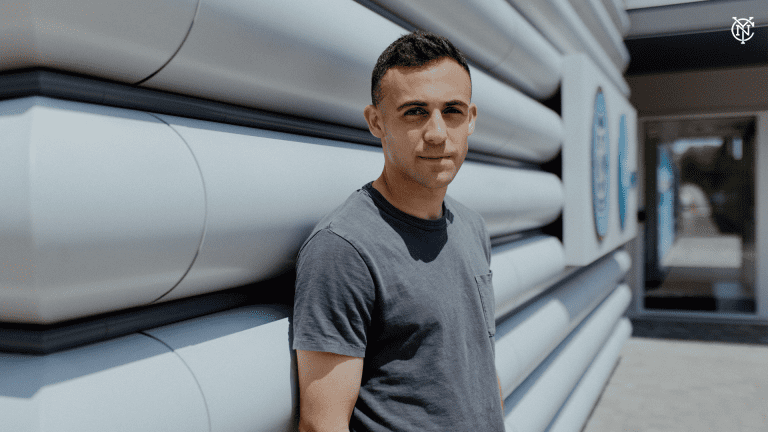
This is your second season with NYCFC II. How have you found that experience with a new team in what is a new league in MLS NEXT Pro?
It's a double-edged sword because it has its pros, everything is new, there's so much opportunity to experiment and experience. We all just came together - a bunch of guys from completely different places, different backgrounds, experiences, from ages 14 to 25 - and together we created a solid group with a good culture. So that's been the challenge and the opportunity, and that's been really fun to be a part of for me personally.
I'm a huge culture guy and I love just creating the best environment possible for the guys. I think that's what a lot of it is about. Obviously, you do what you do on the pitch, but off the pitch, it's about being together and being brothers, working hard and creating an environment that's the best situation to put ourselves in. That's been the fun part of everything being new.
You also have all these new experiences - whether it be rules or things we have to get used to. Every tied game, we have to go into a penalty shootout. I don’t think that's the rule in any other league in professional soccer, so there's a ton of different things that we have to adapt to, and get used to, and that can also be a fun challenge but yeah, the newness to it is a really cool part of it. I think it's cool to experience.
You mentioned the team culture. What do you view as your role in that?
Honestly, I don't try to think about it, as counterintuitive as that sounds. I don't try and think about keeping other people accountable but more keeping my standards high. I want to lead by example, I want to be the one that people can look at and just observe what I do, and look at the success that comes from that, and then people can follow their footsteps in my footsteps.
I don't want to be this guy that’s all over everyone. The idea that people might preach about leadership - that you have to kind of keep everyone accountable about these little details and XYZ - I think that's definitely a huge part of it. There's a ton of little details: cleaning up after yourself, being respectful with the facility, greeting everyone. When you come in, all these things that are important.
I feel like you can harp on about them as much as you want, but I think I've tried to come in here with a mentality that is one of: I want to lead myself, and I think if I lead myself, I'll create other leaders as a result.
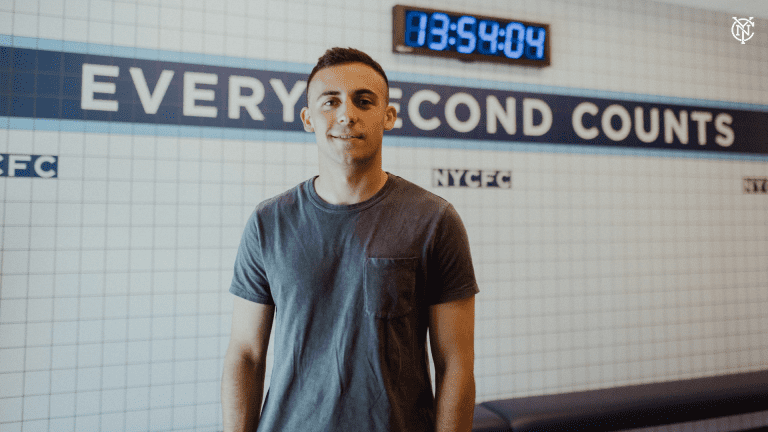
You’ve also been very vocal about the need to take care of your mental health. Can you talk me through your own mental health journey?
Yeah, so I was very observant over my whole childhood and even today - both myself and how I feel. I would notice as I was playing, especially in my younger days - like I wouldn't even know that it was stress or anxiety - but I just knew I was nervous before certain games.
I started to kind of take off around 13 or 14, and that was the time period where I would get invited to National Team camps, and I would play often with older age groups. It was when I was stretched out of my comfort zone, and put in those situations where I felt the stress come on. What I didn't realize was that that's kind of a normal part of the process. It would pretty much just spiral to where it just wasn't good for my mental health.
When I got to College, basically I went to Nationals and I was very excited to go but honestly, every single day, I pretty much cried after training. I was so in my own head, I was so scared to be there. I was nervous to be competing with 50 of the other greatest players in the country. It was just very overwhelming at the time.
I was only 13, I didn't know anyone. It was in California - probably the first time I flew by myself without my parents - and then you have all your hopes and dreams on top of that. It got very challenging for me and carried through until College, and I never really addressed it or asked about it. I always wanted to avoid it, which I think is huge in the lesson that I learned with regard to avoiding those feelings and emotions, and expressing them to other people.
I’d come home and coaches would ask me how the week and National Camps went and I’d be like ‘great’. I went to Georgetown University to play soccer - I was actually playing and I was playing well as a freshman - but in my head, it just didn't feel right. I didn't feel like I was playing to my full capacity. I felt it manifested in my body and literally I just didn't move the same, I didn't feel the same.
What do you think helped you correct the problem?
The key for me was basically expressing it to people, getting it off my chest, and getting these emotions out. That was something I hadn't done my whole life until that point. I asked my coach after that first year if I could take off my sophomore year because I felt I wanted to figure out where my head was at.
I came back my junior year and unfortunately right before preseason, I started having all these panic attacks. Before we left for the preseason hotel, I again had a conversation with the coaches, and this was really the first time that I felt like I opened up. Once I got those emotions off my chest, so much love and support came to me as a result through coaches, teammates, friends - everyone just showed me so much love, and showed me that it was okay to express those types of feelings.
I learned so much about myself from releasing those emotions. and being open. At the end of the day, there was just honesty with myself and with other people. I think the universe rewarded me – at the end of that year, we won the National Championship, and I had to take a penalty. Of all the moments where anxiety could come in and defeat me, I overcame it, and we won the National Championship for the first time in the school’s history. That was kind of the birthplace of this whole mental health journey.
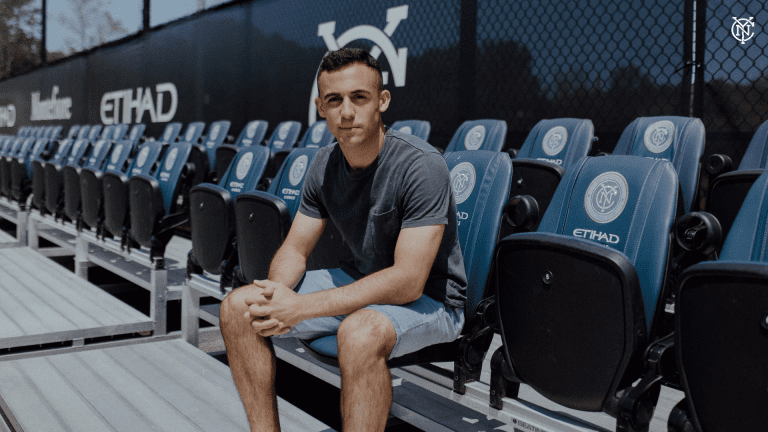
And sometimes when we talk about a mental health journey, we talk about the success at the end, but how important is it to manage the lows of that journey too?
I think that is the big key - to accept those valleys. I think something that was doing me a disservice was avoiding and rejecting those valleys, rejecting the down periods. At the end of the day, one of the biggest things I've learned is that you have to have the downs to experience the highs. I think if it was just highs, those highs would become plateaus. At the end of the day, you need to go through ups and downs, you need to go through challenges, you need to go through that adversity...
I remember thinking: ‘Why is this happening to me?’ and then two years, three years later, you don't realize it was actually something that - even though you felt so much pain, so much confusion, anxiety, all these horrible feelings - it made you so much stronger... You got something out of it, and you learn the lessons that you wouldn't have learned if it wasn't for all that pain. It's actually directly correlated.
If there was someone reading this now that maybe has seen some of the warning signs that you saw in yourself, what would your message to that person be in terms of taking the next step toward being in a better place?
That's a really good question. Usually, I say reach out to someone or have someone reach out to you. I think if I’m going to be honest, to do that, it takes just a little bit of courage. I think, when we talk about mental health, we get into a common way of speaking - like it almost takes no courage or no accountability, like it's supposed to be easy.
It does take courage, it takes willpower, it takes digging deep. It's an act of love for yourself, and an act of respect for yourself, which aren’t easy to do at all. It took me 21 years to tell people genuinely how I felt and feel comfortable doing that. It wasn't comfortable at first, but now I feel incredibly comfortable doing it.
The reason that's the case is because courage is just a muscle, like our biceps or quads. They start off weak, but as you keep going, and you stick through it, that muscle gets bigger and it grows, and you can be confident and trusting. When you get the help you need, then that's when the lessons come through - that's when you realize how much power you actually have to control your own emotions, and make it easier in the future to keep talking, to keep expressing, keep reaching out to other people.
If you need to talk to someone, NYC Well is your connection to free, confidential mental health support. Speak to a counselor via phone, text, or chat and get access to mental health and substance use services, in more than 200 languages, 24/7/365. Visit nycwell.cityofnewyork.us for more information.

